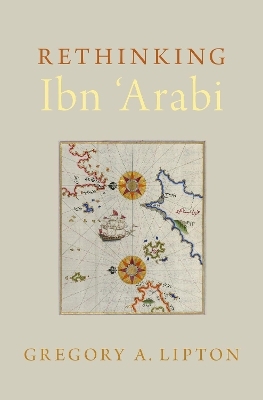
Rethinking Ibn 'Arabi
Seiten
2018
Oxford University Press Inc (Verlag)
978-0-19-068450-1 (ISBN)
Oxford University Press Inc (Verlag)
978-0-19-068450-1 (ISBN)
Exploring how the medieval mystic Ibn 'Arabi has been read as an inclusive universalist through the interpretative field of Perennial Philosophy, this book shows how his metaphysics is inseparably intertwined with Islamic supersessionism. Ibn 'Arabi's universalist reception is thus traced to lineages of Eurocentrism, revealing how Perennialism is itself exclusionary.
The thirteenth century mystic Ibn `Arabi was the foremost Sufi theorist of the premodern era. For more than a century, Western scholars and esotericists have heralded his universalism, arguing that he saw all contemporaneous religions as equally valid. In Rethinking Ibn `Arabi, Gregory Lipton calls this image into question and throws into relief how Ibn `Arabi's discourse is inseparably intertwined with the absolutist vision of his own religious milieuthat is, the triumphant claim that Islam fulfilled, superseded, and therefore abrogated all previous revealed religions.
Lipton juxtaposes Ibn `Arabi's absolutist conception with the later reception of his ideas, exploring how they have been read, appropriated, and universalized within the reigning interpretive field of Perennial Philosophy in the study of Sufism. The contours that surface through this comparative analysis trace the discursive practices that inform Ibn `Arabi's Western reception back to the eighteenth and nineteenth century study of "authentic" religion, where European ethno-racial superiority was wielded against the Semitic Otherboth Jewish and Muslim. Lipton argues that supersessionist models of exclusivism are buried under contemporary Western constructions of religious authenticity in ways that ironically mirror Ibn `Arabi's medieval absolutism.
The thirteenth century mystic Ibn `Arabi was the foremost Sufi theorist of the premodern era. For more than a century, Western scholars and esotericists have heralded his universalism, arguing that he saw all contemporaneous religions as equally valid. In Rethinking Ibn `Arabi, Gregory Lipton calls this image into question and throws into relief how Ibn `Arabi's discourse is inseparably intertwined with the absolutist vision of his own religious milieuthat is, the triumphant claim that Islam fulfilled, superseded, and therefore abrogated all previous revealed religions.
Lipton juxtaposes Ibn `Arabi's absolutist conception with the later reception of his ideas, exploring how they have been read, appropriated, and universalized within the reigning interpretive field of Perennial Philosophy in the study of Sufism. The contours that surface through this comparative analysis trace the discursive practices that inform Ibn `Arabi's Western reception back to the eighteenth and nineteenth century study of "authentic" religion, where European ethno-racial superiority was wielded against the Semitic Otherboth Jewish and Muslim. Lipton argues that supersessionist models of exclusivism are buried under contemporary Western constructions of religious authenticity in ways that ironically mirror Ibn `Arabi's medieval absolutism.
Gregory Lipton is Visiting Assistant Professor in the Department of Religious Studies at Macalester College, where he also held a Berg Postdoctoral Fellowhip in Religious Studies.
Acknowledgements
Prologue
Introduction - Ibn 'Arabi and the Cartography of Universalism
Chapter 1 - Tracking the Camels of Love
Chapter 2 - Return of the Solar King
Chapter 3 - Competing Fields of Universal Validity
Chapter 4 - Ibn 'Arabi and the Metaphysics of Race
Conclusion - Mapping Ibn 'Arabi at Zero Degrees
| Erscheinungsdatum | 25.04.2018 |
|---|---|
| Verlagsort | New York |
| Sprache | englisch |
| Maße | 157 x 236 mm |
| Gewicht | 454 g |
| Themenwelt | Geisteswissenschaften ► Philosophie ► Östliche Philosophie |
| Geisteswissenschaften ► Religion / Theologie ► Islam | |
| ISBN-10 | 0-19-068450-X / 019068450X |
| ISBN-13 | 978-0-19-068450-1 / 9780190684501 |
| Zustand | Neuware |
| Haben Sie eine Frage zum Produkt? |
Mehr entdecken
aus dem Bereich
aus dem Bereich


